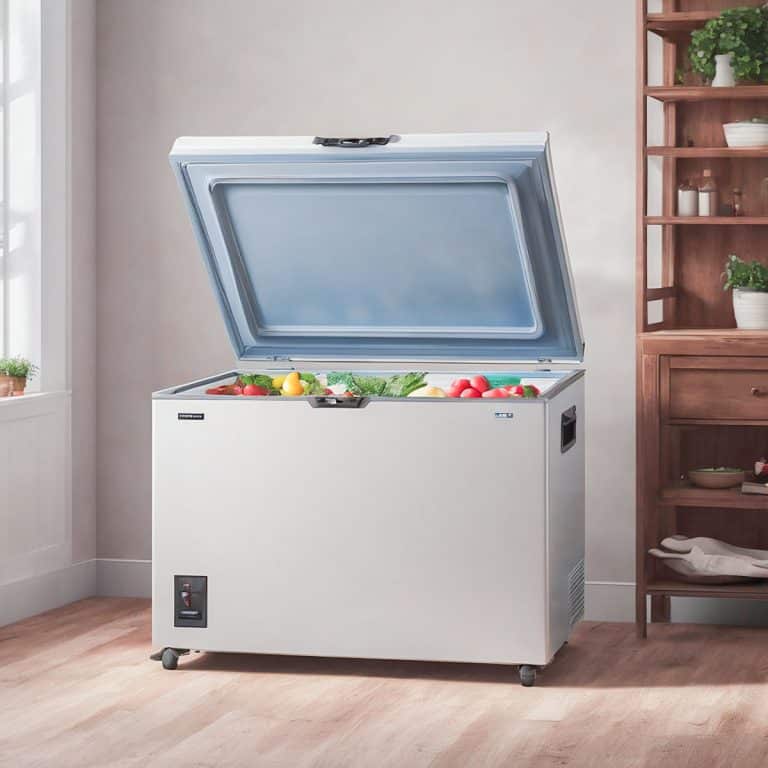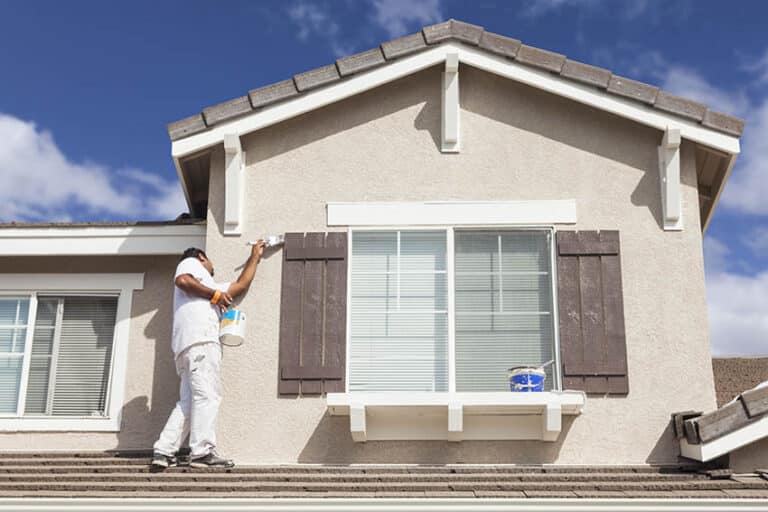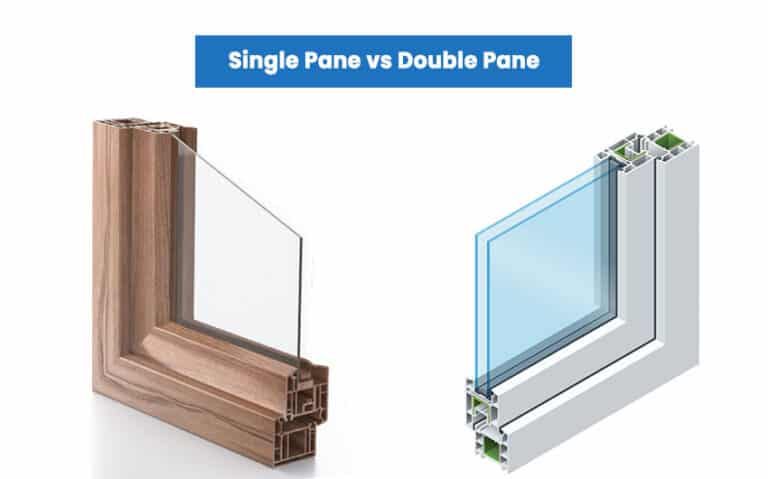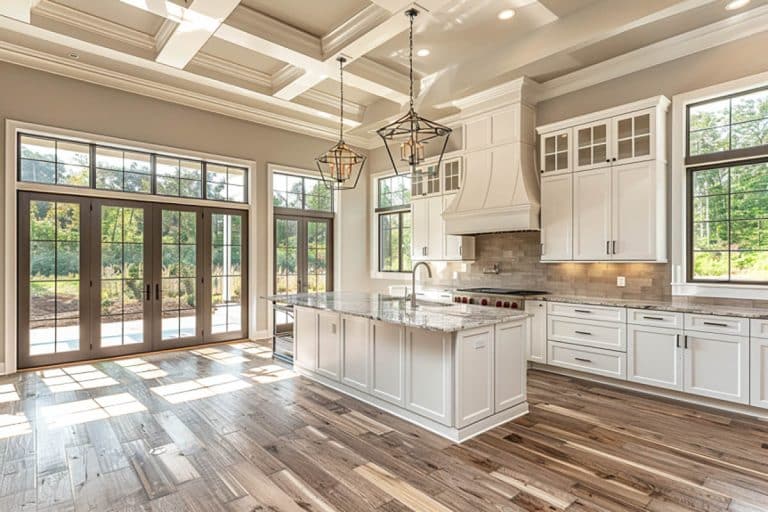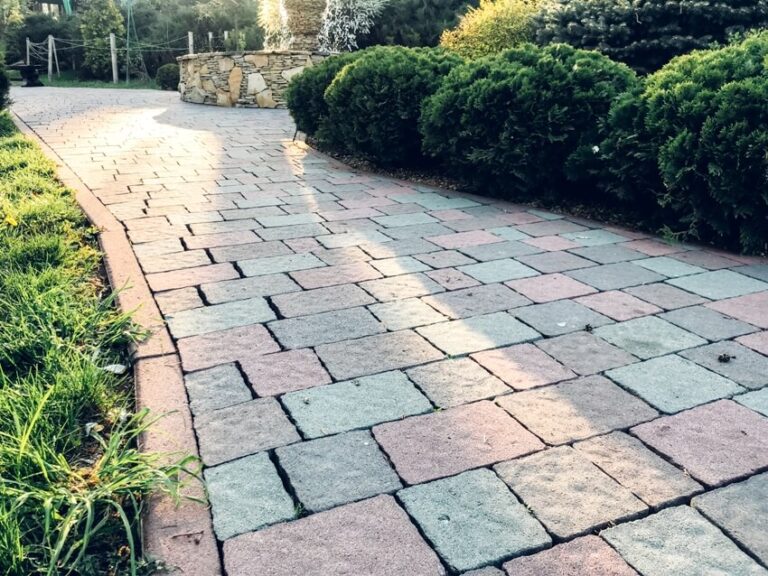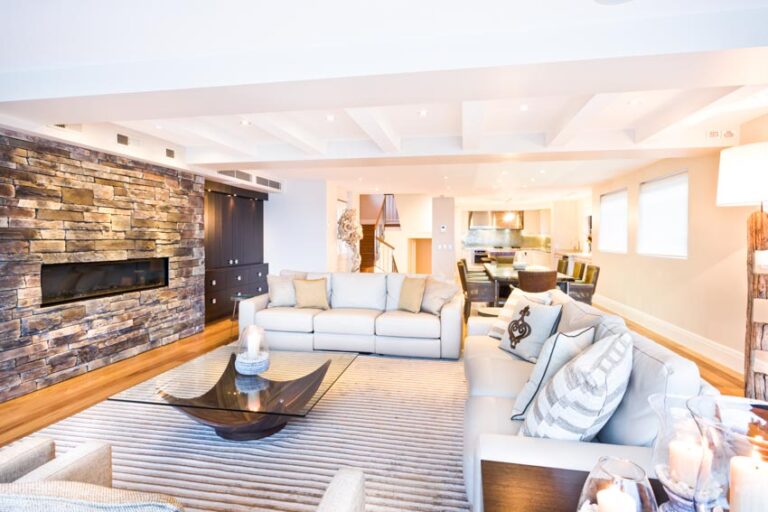Evaporative Cooler vs Air Conditioner
See the differences between an evaporative cooler vs air conditioner, including their pros and cons, cost, and which is better for your house or office.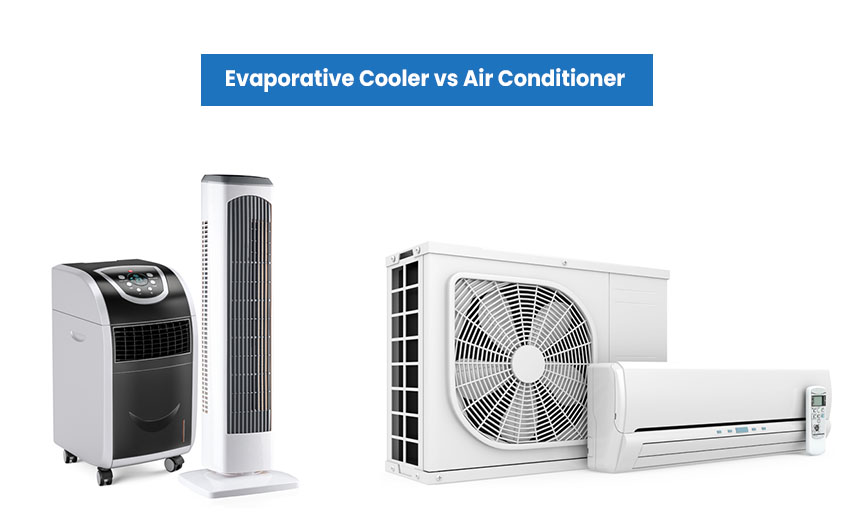 HVAC specialists have extensively discussed the benefits of various air conditioning technologies and their use. However, with increasing power bills, decreasing energy supplies, and environmental issues, substitutes to traditional cooling have risen to the top of the industry’s priority list.
HVAC specialists have extensively discussed the benefits of various air conditioning technologies and their use. However, with increasing power bills, decreasing energy supplies, and environmental issues, substitutes to traditional cooling have risen to the top of the industry’s priority list.
While most of us do not engage in environments where the air-conditioning system is impracticable, millions of employees worldwide, even those in the agriculture, construction, manufacturing, automotive, and warehousing sectors, are subjected to the risk of extreme heat daily. Such people all deserve to be in a pleasant and secure setting.
In this article, we will go over the differences between evaporative and air conditioner technologies. After reading this, hopefully, you will find what air-conditioning unit is ideal and reliable for your house or office. [toc]
What Is An Evaporative Cooler vs Air Conditioner?
Evaporating water into the air is a natural, practical, and energy-efficient way of conditioning or cooling in low-humidity environments. This is the principle behind evaporative coolers, also widely known as swamp coolers. When outdoor air is passed over water-saturated pads, the water in the pads evaporates, lowering the air temperature by 15° to 40°F before it is delivered inside the house.
When using an evaporative cooler, the windows in your house are partly opened to allow pleasant indoor air to exit as fresher and cooler air replaces it. Unlike conventional air conditioning systems, which merely recirculate the very same air, evaporative coolers bring in a continual supply of fresh air.
Evaporative systems necessitate minimal maintenance compared to air conditioners, which can result in significant savings throughout the year. Although evaporative coolers rely on water to gradually cool, they do not generate fog, mist, or spray-form water.
Moreover, evaporative coolers are half the price of central air-conditioning systems in terms of installation, and they use one-quarter of the energy. They do, nevertheless, necessitate more regular maintenance than refrigerated air conditioning units and are only appropriate for places with low humidity. Evaporative coolers are infrequently employed in confined spaces.
Lastly, evaporative coolers use a water-soaked material through which air is drawn by a fan. As air is drawn through the medium, it reacts with the water, causing heat particles in the air to be wiped away, which then results in cooler, moderately moistened air. They perform best in open spaces with an abundance of fresh air.
Air conditioners, on the other hand, are available in a wide range of shapes and dimensions, and they all work on the same basic principle. By eliminating humidity and heat from the indoor atmosphere, an air conditioner offers cooler air within your home or enclosed area. It returns chilled air to the interior while transferring undesired humidity and heat outside.
Air conditioners, also known as ACs, in principle, employ refrigerants to eliminate heat and humidity from a place. They spread the conditioned air with a fan to promote both thermal convenience and indoor air purity. They are typically stationary, ducted setups that necessitate at least bi-yearly upkeep or servicing by an expert to perform efficiently and optimally.
In this form of air-cooling technology, the air is chemically conditioned in coils, and the heat and humidity that is eliminated are released outdoors. Air conditioners function best in completely enclosed spaces and can decrease temperatures to a precise, pre-set atmospheric temperature, irrespective of exterior conditions.
The most significant disadvantage of these systems is their high cost – not only can setup cost a lot of money upfront, but monthly operational costs can go into the hundreds of dollars.
Pros and Cons of Evaporative Air Coolers
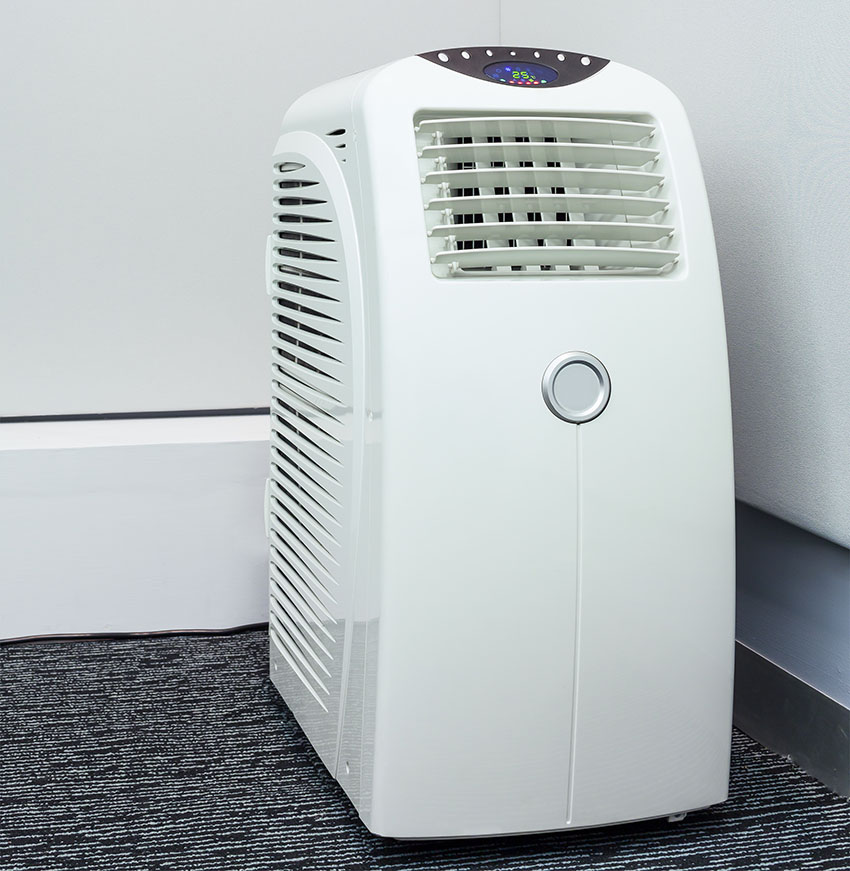
You should understand that an evaporative cooler is much more capable of just delivering whole-house conditioning. Anyway, here are the pros of an evaporative cooler:
Pros of Evaporative Cooling Systems
• Energy-Saving
One of the primary advantages of evaporative cooling systems is that they use far less energy than a regular air conditioner. In reality, an evaporative cooler uses 50% to 75% less energy than a standard air conditioner.
Because an evaporative cooler has no compressor and a refrigerant, it can help save a substantial amount of energy.
• Reduced Installation And Maintenance Expenses
Small evaporative cooling systems necessitate simple installation. However, a ducted evaporative cooler necessitates the construction of ductwork and vents around the home.
Evaporative coolers require little maintenance because they have fewer moving components and merely use basic technology. The specific operating and maintenance expenses are determined by the evaporative cooling unit’s fan power and cooling capability, but there is no doubt that it will be less expensive than air conditioners.
• Safe And Environmentally Friendly
An evaporative air conditioning system improves air purity and allows you to inhale clean air without burning out the environment, which is good for your health. Most notably, it employs non-polluting, environmentally friendly innovation, which has various benefits over compressor-based cooling units.
• Suitable Option For Dry Climatic Regions
For regions with dry weather, evaporative cooling would be an extremely cost-effective and preferable cooling option. That is because the air in a dry climate is lower in humidity and has a larger capacity to accumulate water vapor.
Note that an evaporative cooler employs humidification to lower the temperature of the atmosphere. Because dry climate promotes breathing difficulties by drying out the interior of the nasal passages, as well as skin dryness, changes in respiratory mucosal surfaces, and rhinitis, evaporative coolers increase comfort by boosting the moisture content in the atmosphere.
• Efficiently Filters the Air
One other reason to choose an evaporative cooler is that it pulls in heated air, filters it via damp pads, and spreads it around the space. As a result, the system captures dust particulates, mold spores, and other irritants in the atmosphere before distributing natural and tidy air.
Even though an evaporative cooler necessitates little upkeep, salt, and other mineral deposits might accumulate if your location has hard water. Furthermore, if the cooler is positioned on the roof, upkeep might be much more cumbersome and potentially hazardous.
Cons of Evaporative or Wet Air Cooler Systems
• Not Suitable for Humid Environments
In hot and humid conditions, using an evaporative cooler might not offer the same thermal warmth and comfort as standard AC units. Since excessive humidity inhibits the atmosphere’s capability of absorbing additional moisture, it will eventually limit the operation of your evaporative cooler.
The incapacity of an evaporative cooler to function in high-humidity areas makes it a far less desirable alternative than a traditional indoor cooling unit.
Pros and Cons of an Air Conditioner
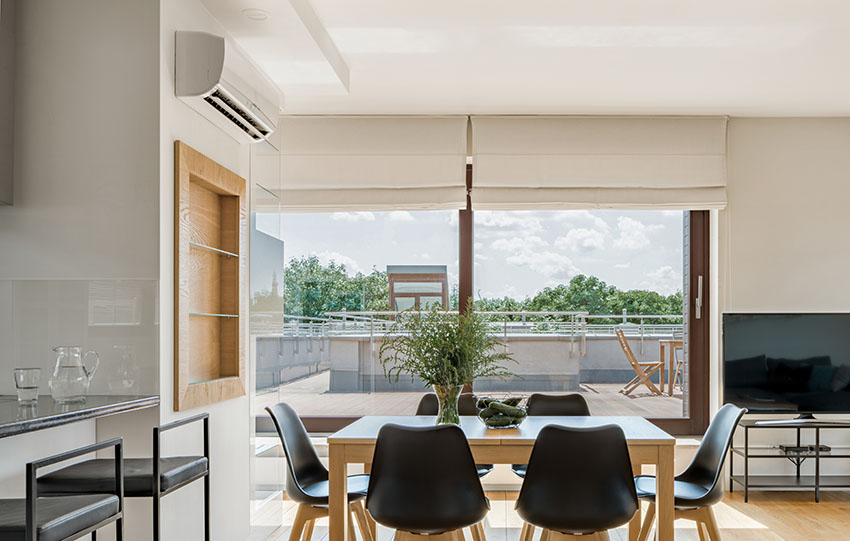
Pros of ACs
• Helps in Preventing Dehydration and Other Heat-Related Illnesses
Prolonged hours of exposure to high temperatures might result in dehydration. Hot temperatures induce excessive sweating and trigger your body to lose fluids. Dehydration will occur if you do not restore this lost water. However, cooling units minimize sweating, which decreases the danger of loss of water and dehydration.
Heat strokes are yet another issue that can arise as a result of extremely high temperatures. Excessive heat can render it problematic for the body to control its temperature. A failure to address this disease soon enough can result in cerebral and other organ failures. ACs can help avoid heat strokes since they lower the temperature.
• Aids in the Treatment of Allergies and Asthma
It can help filter and sterilize the atmosphere. Eliminating allergens and dust and avoiding the formation of mold and mildew can assist in lowering the incidence of asthma attacks and allergies.
Mold exposure is one of the primary threat factors for asthma episodes, allergic responses, as well as other respiratory difficulties. The idea that we shut our windows when using cooling units help to keep allergies, viruses, and dust out of our homes.
• Enhances the Air Quality
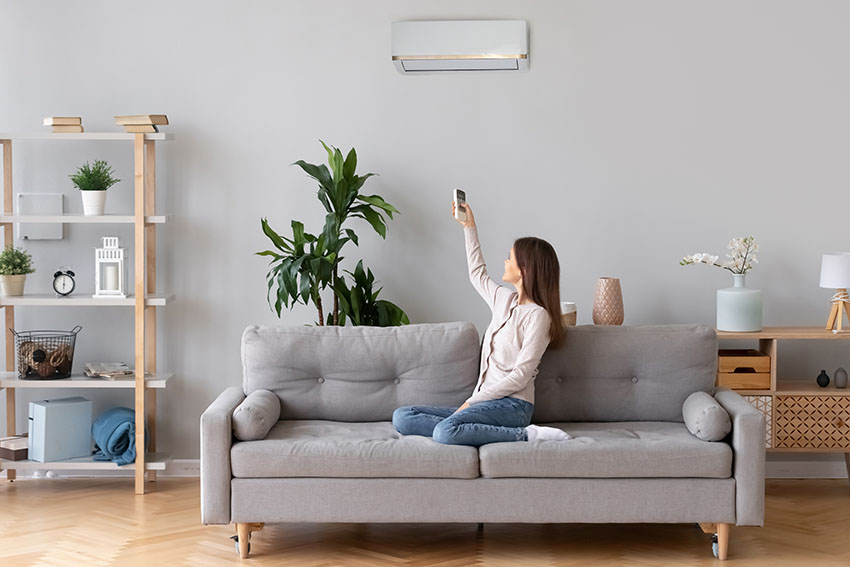
These consume a significant amount of electricity. This results in both financial drawbacks for those who must pay for electricity and increased ecological downsides due to power generation.
Since coal-burning power facilities generate a major portion of electricity, AC units inadvertently add to the emission of greenhouse gasses and harmful pollutants.
Cons of Air Conditioning Systems
• Dryness of the Skin
Spending more time in a temperature-controlled atmosphere might cause your skin to lose moisture, making it irritated, dry, and sensitive to various elements. It can also induce mucosal membrane discomfort and dryness.
• Exacerbation of Respiratory Issues
A drastic temperature shift has been demonstrated to aggravate the symptoms of numerous respiratory disorders. Luckily, you may considerably limit the likelihood of this issue by starting with a higher temperature and then slowly lowering it.
• Allergies and Respiratory Tract Disorders
The accumulation of dust, viruses, and allergens in the filters can be caused by not maintaining the AC unit. Asthma episodes and respiratory disorders will be greatly increased as a result. Hence, cooling systems need to be maintained, and duct work cleaning performed properly two to three times a year.
Evaporative Air System vs AC Unit Cost
Prices for evaporative coolers can range from $40 for compact, portable units. However, for permanent or roof-installed evaporative cooling units, the cost might range from $1,500 to $2,000. The cost of the unit will be decided mostly by its size, location, and the amount of ductwork required.
Furthermore, the installation of an evaporative or swamp cooler will cost around $2,000 on average. This figure includes $700 in labor or 10 hours at $70 an hour. This covers the unit price as well as any additional supplies, including equipment, fasteners, connectors, adapters, and installation hardware.
If you already have ducting installed around your home, getting a central cooling system might be a better option. The average cost for AC units varies depending on the size and other considerations, but it is normally around $2,500 to $6,000. The installation cost might be around $500 to $700 in labor.
Are Swamp Coolers More Energy Efficient?
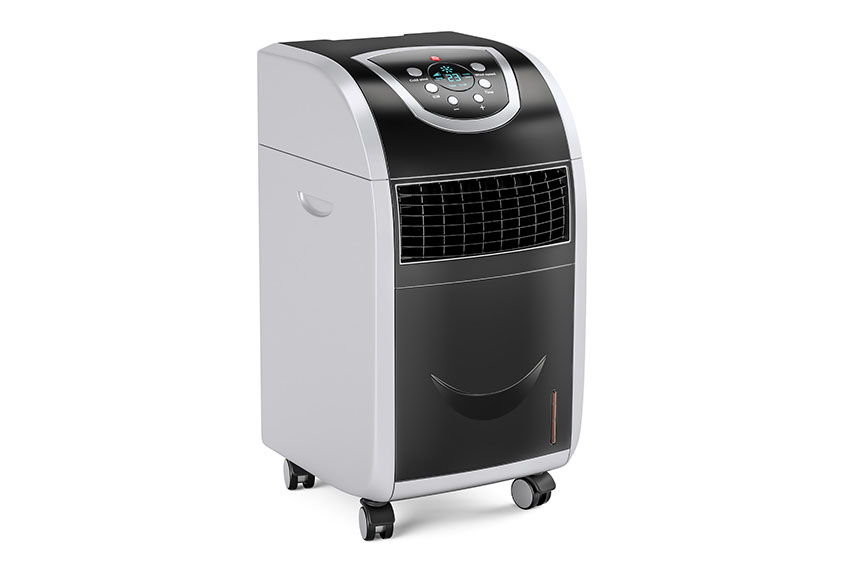
Moreover, it has a very big potential to be much more beneficial for the environment. Nonetheless, it must be emphasized that they do need a regular supply of water to function efficiently and properly. This might be a concern for those who have a limited water supply or are subject to water restrictions.
Are Swamp Cooling Units Better Than AC Systems?
In terms of energy efficiency, ease of maintenance, and overall cost, an evaporative cooler would probably win the contest. When comparing such coolers to AC systems, it is clear that evaporative or swamp coolers are the superior choice when it comes to safety as well because they are very eco-friendly.
On the other hand, in terms of powerfully cooling any enclosed space, regardless of the outdoor environment, ACs would be the better option. These work best in fully enclosed areas and can reduce temperatures to a certain, preset ambient temperature, even if there is limited fresh air outdoors. This is something that evaporative coolers are not capable of doing properly.
However, if your outdoor location is rich in fresh air, you will not have any problems choosing an evaporative cooler. Arguably, in many aspects, these coolers can easily win the contest.
Why Are Evaporative Coolers Called Swamp Coolers?
Due to the fact that it employs pads and moisture to cool your house or office, it is quite clear and wise to call these coolers ‘swamp coolers’.
For more related content, see our article about the types of home cooling systems here.

